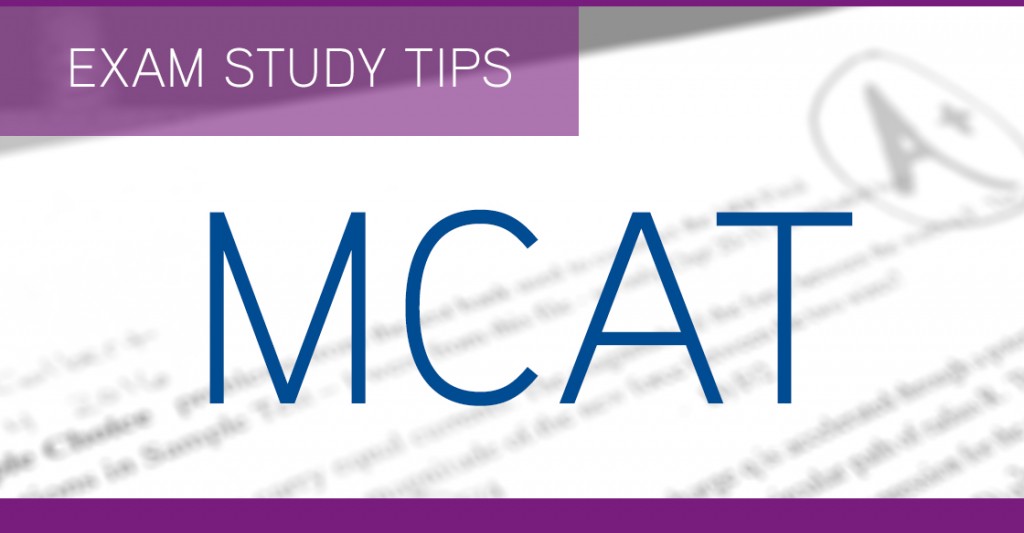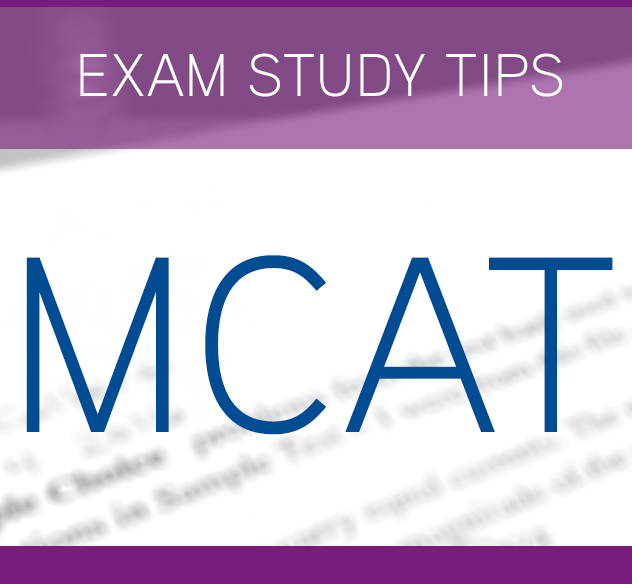
Studying for the MCAT is no easy feat. It requires months of preparation and getting into the medical school of your dreams is contingent on how well you prepared.
It’s recommended to study 3-6 months before the test, but finding time to study can pose to be a challenge between college classes, volunteering at a hospital, or other responsibilities. If you manage your time efficiently and utilize effective study tools, you’re on the right track to achieving a score ideal for a competitive medical school.
The MCAT, administered by the Association of American Medical Colleges, is broken up into three sections: physical science, biological sciences, and verbal reasoning. Keep in mind, the AAMC states that the subjects are based on knowledge from introductory-level courses of general chemistry, physics, biology and organic chemistry, but properly preparing is still key to your success on the MCAT.
Here are five easy ways to prepare for the MCAT:
1. Assess your knowledge.
The first you want to take in preparing for the MCA is to take a practice test. Simulate the testing environment in a quiet space and time yourself for each section. When you finish, review your results and identify your strong and weak points. Use these results to map out your study plan for the next months to come.
You can purchase a practice MCAT test through the AAMC website for each section or in a bundle.
2. Make a schedule.
After you know where you stand and are aware of what sections you need to concentrate the most on, make a daily schedule tailored to you. Once you make your schedule, follow it. Try to find time after work, in between classes, and even during the weekends. Don’t stray off track because each minute you spend preparing for the MCAT gets you one step closer to achieving a great score. Your schedule will be your guideline, motivator, and progress tracker during your MCAT preparation.
3. Get all the help you can get.
To get you through the MCAT, you’re going to need to some moral support. This type of support can be found through others also preparing for the test or through MCAT prep courses in your neighborhood. If you have the time, consider signing up for a MCAT prep course to sharpen your test-taking skills and even meet people also going through the long, difficult study process. Another alternative (and a cheaper one too) is to get together with other prospective med students and schedule group study sessions. Learning from as well as teaching others can be extremely beneficial to retaining information and can also keep on you track.
4. Study on the go.
As previously mentioned, every minute of your time brings you a little bit closer to earning a great MCAT score. Make the most of your time when you’re on the go by downloading study apps on your mobile phone to keep your progress up. Utilizing your free time as a supplement to your study prep will keep you on your toes and help you stay focused.
Find an app that allows you to customize your study preparation and track your progress for those long rides on the bus. Apps like MCAT + by Arcadia Prep, Inc. and MCAT Review by Watermelon Express offer comprehensive study tools to take with you wherever you go.
And for when you’re sitting around waiting for class to start, look over study flashcards with McGraw-Hill’s MCAT Exam Prep: Biology, General Chemistry, Organic Chemistry, and Physics app or Kaplan’s MCAT® Flashcards: Kaplan National Practice Test for free.
5. Find balance.
Chances are you already have a lot on your plate in addition to studying for the MCAT. As a prospective medical student, colleges courses, putting time into volunteering at a hospital, and working a second job cut into valuable study time. Find a balance between your daily routine and preparing for the MCAT so that sufficient time is allotted to each task. Treat studying for the MCAT as a job or a meeting that you can’t miss by setting a designated time each day for MCAT prep.
Ultimately, the goal isn’t to mentally drain yourself. You need to find a healthy balance and stay focused. If you get sidetracked, try reading a novel, working out, or playing a game to stimulate the brain, like Lumosity or 2048.




